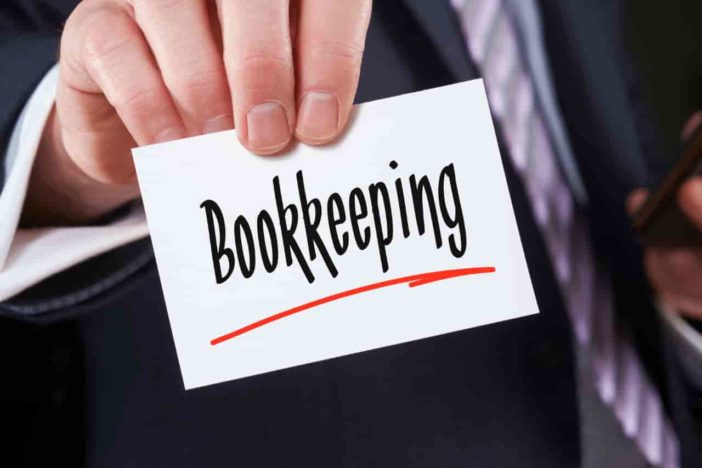Bookkeeping is the task of recording and organizing all financial documents related to a business. It is the first step to accurate accounting and is among the fundamental processes that ensure long-term success. To put it into perspective, let me paint you a mental image:
The lack of any bookkeeping system feels like going shopping without knowing there are holes in your wallet, accidentally leaving your items at the checkout counter, then being held up at the store exit because you got caught with an item from another shop you forgot to pay for – everything is just a mess, but you only find out too late.
Bookkeeping Key Points:
- If money is the lifeblood of your business that keeps it running, then bookkeeping is the safety net that prevents it from falling apart due to neglect.
- There is less hassle when providing financial statements for legal, personal, or business growth use.
- You can even win over business investors with a great bookkeeping system.
- Bookkeeping grants you peace of mind because there’s a proper system in place that protects your business.
The U.S Bank states in its research done just last year, “a whopping 82% of small businesses fail because of a lack of understanding/poor management of cash flow”.
If money is the lifeblood of your business that keeps it running, then bookkeeping is the safety net that prevents it from falling apart due to neglect.
Now, whether you’re a small business owner who knows nothing yet about bookkeeping, or the CEO of a multi-million dollar conglomerate curious to check over your accounting department’s more refined processes, you have to understand why bookkeeping is crucial for a business to have. Here are a few bookkeeping basics you can’t afford to ignore:
1. Familiarize yourself with the A to Zs of Bookkeeping.
Basic accounting terms such as assets, liabilities, equities, accrual basis, cash flows, debits, credits, and more are only some of the words you need to be familiar with to understand how the numbers reflected on these words work in your ledgers.
2. Don’t forget to account for even the pettiest of expenses
You can never have too many ledgers. A ledger is a collection of accounts of a company’s financial data. It’s a record where you store bookkeeping entries for income statements and balance sheets.
Accounts Payable Ledger, Accounts Receivable Ledger, General Ledger, or more detailed ledgers are necessary to have to depend on the needs of your business. The more accurate these are, the better you can avoid overlooking holes or “hidden” expenses.
3. Keep track of variable and non-variable expenses
Variable expenses can increase or decrease over time, such as production costs and unpredictable fees, while non-variable prices are fixed amounts deducted over specific intervals such as the employees’ salaries.
4. Don’t equate profit to sales
Profit is total revenue minus total expenses. It’s the financial gain of the company when the income surpasses total costs and costs, while sales mean is the revenue earned in exchange for a product or service. It doesn’t reduce the expenses and materials used to produce a product, only the money paid in exchange for the product.
5. Hire an Accountant and Make Use of a Bookkeeping Software
Accountants do not only help save you money, but they also give you helpful advice regarding the financial aspect of your business. Risk is very prominent for small companies, which is why hiring an accountant will be an advantage if you want to save up and earn more proactively.
Making use of bookkeeping software can help you and your accountant monitor the movement of money in your business, allowing you both to know what steps to take next and how you can improve future financial transactions.
6. Don’t Throw Away Tax Records, Even After 7 Years
Keeping tax records is a must if you’re a business owner. If you experienced a loss from bad debt deduction or worthless securities, your tax records of 7 years might help you claim the loss back.
7. Use Financial Statements to Strategize Your Plans Moving Forward
A financial statement is a formal record of your company’s economic activities. Keeping track of how money flows in and out of your company can help you form a more systematic financial structure for your business and avoid loss.
The preliminary financial reports are the cash flow statement, profit and loss statement, and balance sheet. Each of these financial reports offers different financial information that is connected.
Proper and effective bookkeeping makes companies understand how their performance has been. Ledgers provide information that can help business owners formulate strategic plans to achieve the company’s financial goal without losing anything.
Bookkeeping also helps the business budget accurately without losing something. It also keeps you prepared for taxes – which is essential if you want your business to operate legally.
An excellent business is not only determined by its products and services, no matter how exceptional the quality is. The financial records of the company also determine how effective a business is. If you want to grow bigger, you’ve got to have clean financial records, and bookkeeping is the answer to help you maintain clean financial records.





